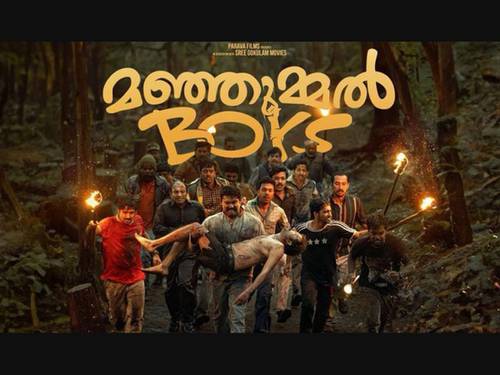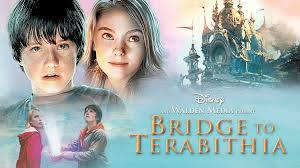Time-travel has always been a favourite for sci-fi writers. The concept is truly mind boggling.
Be it Surya’s ‘24’, Vishnu’s ‘Indru Netru Naalai’, or Hollywood movies like Nolan’s ‘Interstellar’, The 'Planet Of The Apes’ series (1960s version), or ‘The X-Men’ series, each of these have been thoughtfully made.
Time travel has its influence not only in movies, but also in novels. As a matter of fact, the concept of time travel was popularized by the famous H.G.Wells novel ‘The Time Machine’. But have you given a thought to it logically? If you have, have you ever felt some things are logically contradicting, i.e., not making proper sense. Well, these ‘logical contradictions’ are known as time paradoxes.
Paradoxes in general, are arguments that produce an inconsistency, typically within logic or common sense.
Consider the phrase ‘This statement is false’. Now if we assume what the statement states is true, then according to the statement itself, it is wrong and therefore this assumption can’t be right. If we assume the statement to be wrong, i.e., false, then from the statement it can be inferred that the statement must be true, since what the statement says is wrong. But in that case our assumption again goes wrong. This is what ‘logical contradiction’ means. The statement itself puts its meaning into a true-false limbo in which neither can be correct. This is the well known ‘liar’s paradox’.
Another example is the ‘Crocodile’s Dilemma’. A crocodile steals a child and tells the child’s father that it would return the child if the father could correctly predict what the crocodile would do. So now there are two obvious predictions that the father can make:
- The crocodile will return his child. If this prediction is correct, then the crocodile has to return the child to the father and could keep/eat the child if the prediction was wrong. This statement is not paradoxical as it isn’t contradicting any logic.
- The crocodile will not return his child. This is the statement which makes the whole scenario a paradox. At first let us consider that the said statement/prediction is true. So the crocodile must not return the child. But since the father has guessed correctly, the crocodile abiding to his word has to return the child thereby making the said prediction wrong. Now if we assume the prediction to be wrong, then the implied meaning would be that the crocodile would return his child, but since the guess was wrong, the crocodile should keep the child to himself, thereby making the prediction true. But then our assumption goes wrong as we had considered the prediction to be wrong. Paradoxical isn’t it?
Paradoxes can also be spotted in English poems, where they are observed in the form of 'oxymorons’. Phrases such as ‘cruel kindness’, ‘living death’ are a few examples. An oxymoron is a figure of speech used mostly in poems, in which apparently contradictory terms appear in conjunction.
I hope you are now familiar with the concept of paradoxes, as the ones based on time travel are a tad more confusing. Wikipedia states that ‘A temporal paradox, time paradox, or time travel paradox is a paradox, an apparent contradiction, or a logical contradiction that is associated with the idea of time and time travel’, which I believe most of you would have guessed by the name itself. Time paradoxes themselves can be divided into two sub groups: Consistency Paradoxes and Casual Loops.
Consistency Paradox
This paradox is best exemplified by ‘Grandfather’s Paradox’. Consider a person Tom, who has the ability to travel through time. Supposedly one day he decides to travel to a point of time in the past where his grandfather has not yet met his wife, i.e. Tom’s grandmother. He travels to that point and kills his grandfather. Now let us consider the series of events that will take place as result of Tom’s meddling with time. Since Tom’s grandfather is killed even before he meets his future wife, it is obvious that Tom’s father/mother would not have even been born and consequently Tom could not have been born. This is where the contradiction comes. If Tom does not even exist, then how could he have possibly travelled through time and killed his grandfather? Since the cause behind the changes in the past is in the future, any change in the past would destroy the circumstances or agent of the cause thereby not allowing any changes to occur in the past. It does not necessarily have to be the grandfather, it can also be Tom's father or mother or even his younger self. This paradox is widely used to validate the fact that time travel is not possible.
Now let us try to apply this paradox to the infamous Surya starrer ‘24’. The movie as a whole is based solely upon time travel. In the climax of the movie it is shown that both Mani and Athreya (both enacted by Surya himself) time travel to the point in past before the accident that paralyzed Athreya (to be more precise, they got their conscience transferred to their younger self , as that in the X Men movie: Days of the future past). Soon after, Athreya the classic villain is killed. But Athreya was the one who initiated the series of events in future which led to the travelling of both him and Mani through time, that ultimately resulted in his death. Since the reason for his death has been destroyed/deleted from the time line by changing the past, he cannot die. Another feature that was distorted in the movie is the method of time travel itself. In the movie as stated before, the concerned person time travels by projecting/transferring his/her future conscience into their younger self. Now what if the person decides to travel to a point in the past when he/she wasn’t even born, or when the time travel watch had not even been created? Confusing isn’t it? I would advise you to give this some more thought to get a 'confused clarity'.
Casual loops
As the name suggests, this paradox is based upon loops or a limbo of events throughout the time line. Unlike the previous paradox, this one does not imply that time travel cannot take place, but it does say that no change can be brought about by time travel. This is well explained by the Novikov Self Consistency Principle . According to it, the series of events initiated by the change brought about in the past due to time travel were the reason for the time travel to have happened in the first place.
Now let us consider another example. Tom learns about World War II and decides to do something about it using his time travelling ability. So he travels to a point in time when Hitler was young and makes an attempt to kill him, at which he fails miserably. His ‘good intended’ failure attempt, in some way initiated a series of events which cultivated hatred towards Jews in Hitler’s heart, becoming the primary cause for the World War II. Now wasn’t the events of WW-II, the reason for Tom’s time travel? In simple words, an event A caused another event B, which further caused the event C, which in turn caused A. I guess now you would have got the idea of what I meant by loop/limbo. Technically speaking, these are closed time like curves often referred to as ‘casual nexus’. The term nexus is used to show that each and every event in the time line is interconnected, and one cannot exist without the other. Also, if you have noticed, no change has been brought to the time line as stated earlier.
Movies that exemplify the above paradoxes very well include the old ‘Planet of the Apes’ series. I cannot delve into the details since the series consists of eight movies, but I surely would like to comment about Vishnu’s ‘Indru Netru Naalai’. The Director has made a decent attempt at bringing out the concept of these paradoxes, but like many others he too has made many logical mistakes. In my personal opinion, the major mistake in the movie is that time travelling is shown to involve casual nexus and in some cases changes to the timeline takes place, as per the convenience of the plot. However as discussed earlier, if casual nexus is considered, changes to the time line cannot happen.
The study of paradoxes is generally said to kindle critical thinking, and I hope I have provided some food for thought!





